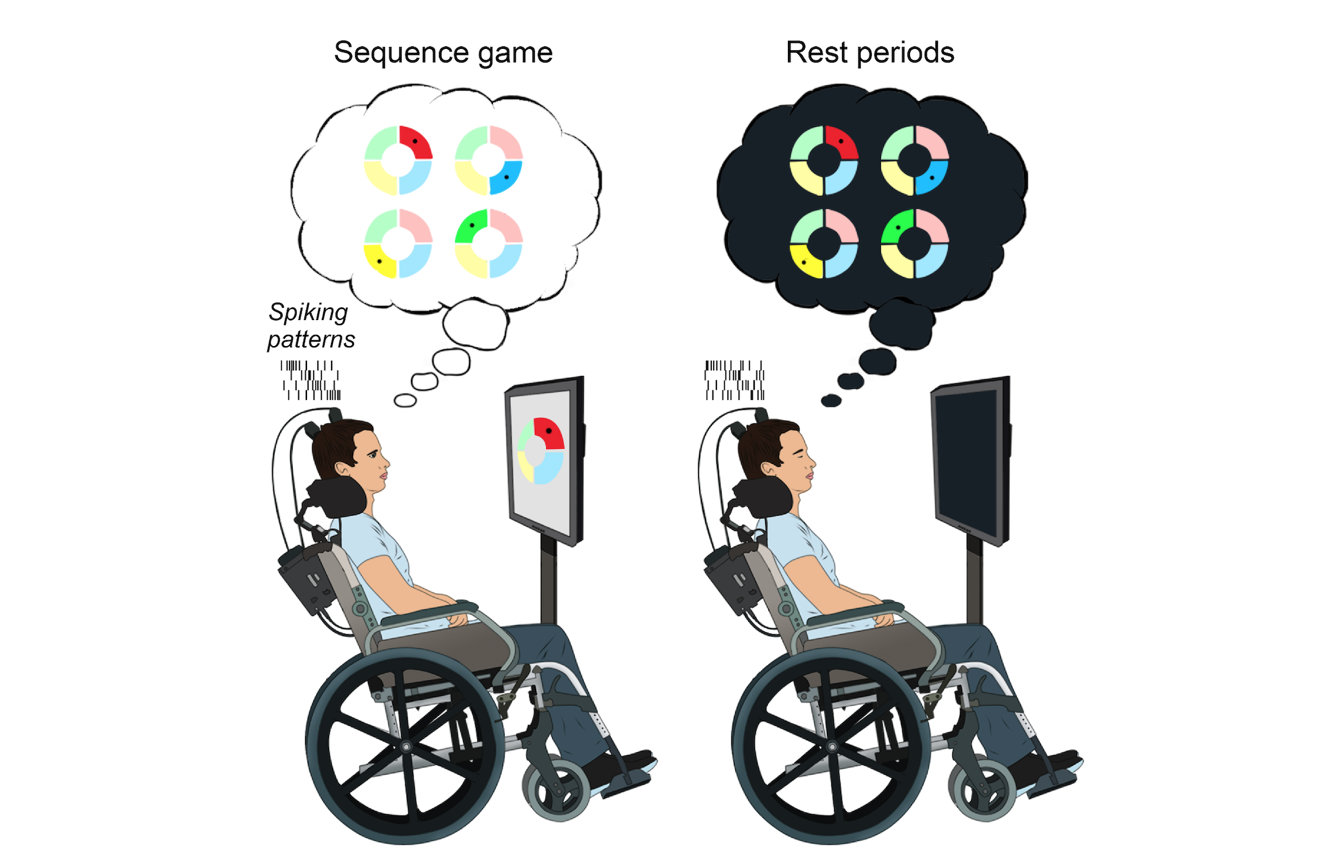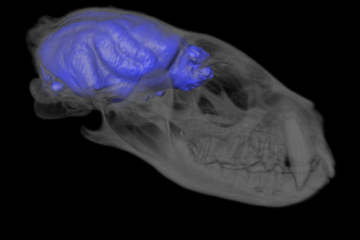
Jean-Baptiste EICHENLAUB
Former Fyssen 2013
Cell Reports :
Eichenlaub and Jarosiewicz et al.,
« Replay of Learned Neural Firing Sequences during Rest in Human Motor Cortex »
Abstract
The offline ‘‘replay’’ of neural firing patterns underlying waking experience, previously observed in non-human animals, is thought to be a mechanism for memory consolidation. Here, we test for replay in the human brain by recording spiking activity from the motor cortex of two participants who had intracortical microelectrode arrays placed chronically as part of a brain-computer interface pilot clinical trial. Participants took a nap before and after playing a neurally controlled sequence-copying game that consists of many repetitions of one ‘‘repeated’’ sequence sparsely interleaved with varying ‘‘control’’ sequences. Both participants performed repeated sequences more accurately than control sequences, consistent with learning. We compare the firing rate patterns that caused the cursor movements when performing each sequence to firing rate patterns throughout both rest periods. Correlations with repeated sequences increase more from pre- to posttask rest than do correlations with control sequences, providing direct evidence of learning-related replay in the human brain.
Key words
memory replay; memory consolidation; human motor cortex; microelectrode array; sleep; brain-computer interface

This study has been led by Jean-Baptiste Eichenlaub, a former Fyssen postdoctoral fellow at the Massachusetts General Hospital (Boston, US), and Beata Jarosiewicz, formerly Research Assistant Professor at BrainGate, and now Senior Research Scientist at NeuroPace. Jean-Baptiste Eichenlaub currently holds a Lecturer position at the Université Savoie Mont Blanc (Laboratoire de Psychologie et NeuroCognition). His research focuses on the role of sleep on cognition and age-related cognitive decline.


